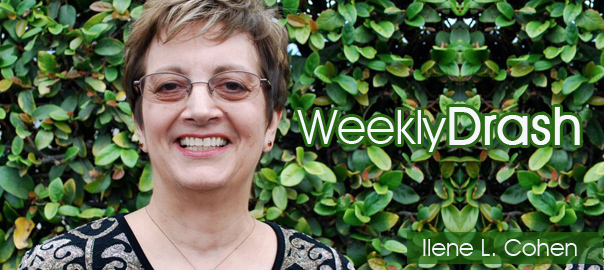“The Priestly Blessing:” Drash on Naso– June 2, 2017

by Ilene Cohen
In the parasha for this week, NASO, appears the most familiar words in the Torah—so familiar that as I read them, you might be tempted to tune them out, but I want to ask you to do just the opposite and really focus on my words of “The Priestly Blessing”.
“God spoke to Moses: Speak to Aaron and his sons:
thus shall you bless the people of Israel. Say to them: God bless and protect you! God deal kindly and graciously with you! God bestow his favor upon you and grant you peace.”
In the words of Marcia Falk from her book, “The Book of Blessings”: If you are looking for the heart and soul and the bones of the Hebrew prayer, you will find them all in the words of a blessing. A blessing in Hebrew, “B’rakhah”, is a special kind of utterance that can turn a moment into an event. Blessings intensify life by increasing our awareness of the present moment even while awakening our connections to the past. In a richly faceted world full of surprise and infinite variation, the source of blessings is everywhere to be found. It is no wonder that the Talmud proclaimed that it is forbidden to enjoy anything of this world without first saying a blessing.
Let’s look now at the history and the meaning of this “Priestly Blessing” according to the Torah. Among the chief duties of the Priests in ancient biblical times was to bless the people Israel in the name of God.
The blessing, however, issues solely from God and the Priests’ function is merely to channel it. The source of this blessing goes far back into ancient times; the text of the priestly blessing has been found on silver amulets dating from the late 7th century BCE. It is the only known inscription that predates the Babylonian exile.
The blessing is structured in three lines, each slightly longer than the preceding one in Hebrew: three words, then five words, then seven words each with the divine name occurring as the second word in each line:
“May God bless and protect you” One interpretation is to bless you with both material and spiritual wealth. “Protect you” may mean from the loss of these gifts. God blesses you according to your needs—blessing the student with intelligence, a sick person with healing, a new baby with good health and love, a married couple with happiness, a bar or bat mitzvah with the blessing of Torah and continued learning. We also bless the food we eat with gratitude for its presence in our lives. It blesses Jewish holidays with prayers, songs, and rituals. And we bless natural occurrences of which we take notice and take the time to really notice it—such as a rainbow, a waterfall, trees, or even the first viewing of the Grand Canyon.
Let’s go to the next line: “May God deal kindly and graciously with you.” “Deal kindly” in the Hebrew means to make God’s face shine upon you. This line is interpreted differently by scholars but is often understood as a prayer for the light of wisdom and a knowledge of Torah.
“Graciously” is often interpreted as to give you the gift of grace and that you live in a society that will admire you for your devotion to God and Torah.
Finally, “ May God bestow favor upon you and grant you peace.” Literally the Hebrew means to turn God’s face in your direction. Often it is also understood to mean forgiveness for shortcomings. The last part, “God grant you peace.” Peace begins in the home, then extends to the community and finally to the whole world. Note that the blessings for food, the Amidah, the Kaddish, and even the entire Mishnah all conclude with a prayer for peace.
I must add that I feel really blessed to have been assigned this parashah Naso because in the process of researching this topic, I have learned so much about prayer and blessing and have been so enriched by the experience.
Since the theme of this service is about blessing, I would like to conclude this drash by reading an excerpt from a blessing written by Marge Piercy.
The discipline of blessings is to taste each moment, the bitter, the sour, the sweet and the salty, and be glad for what does not hurt. The art is in compressing attention to each little and big blossom of the tree of life, to let the tongue sing each fruit, its savor, its aroma and its use.
Attention is love, what we must give children, mothers, fathers, pets, our friends, the news, the woes of others.
What we want to change we curse and then pick up a tool. Bless whatever you can with eyes and hands and tongue. If you can’t bless it, get ready to make it new.
The entire text of this poem, “The Art of Blessing the Day” is in a handout you can take home.




